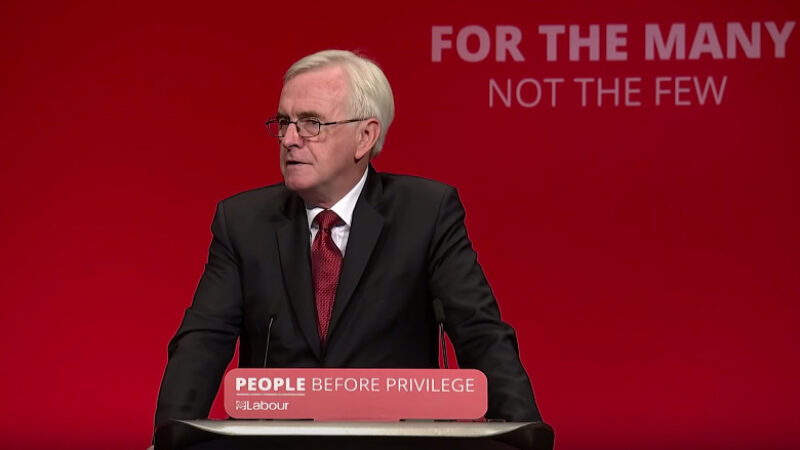
A four-day working week has become Labour policy today, as John McDonnell confirmed the party would back the move in government.
“I can tell you today that the next Labour government will put in place the changes needed to reduce average full-time hours to 32 a week within the next decade,” the Shadow Chancellor told conference. “A shorter working week with no loss of pay.”
Explaining the latest radical policy move, McDonnell said he had “always believed we should work to live, not live to work” and noted that “the average full-time working week fell from nearly 65 hours in the 1860s to 43 hours in the 1970s” thanks to the labour movement.
The policy motion advocating a four-day week was put forward by CWU, and the bold proposal has been endorsed by TUC, Momentum and the Labour 4 Day Week campaign group.
Commenting on the announcement, TUC general secretary Frances O’Grady said: “It’s time for working people to share in the benefits of new technology. That’s why unions have been arguing for less time at work, more time with family and friends and decent pay for everyone.
“We welcome Labour’s commitment to move to a 32-hour week. Introducing more public holidays and enforcing safe limits on working hours is a sensible start. Unions already negotiate agreements on working time in many workplaces. With greater freedom to bargain across sectors, we can help deliver a flexible transition that meets the needs of workers and businesses across different industries.”
The campaign Labour 4 Day Week said: “Moving to a four-day week will drastically improve the lives of people up and down the country by giving them back the time to spend with their communities, their friends, their families and their loved ones. This is the boldest attempt to transform and improve people’s lives in a century.”
Laura Parker, Momentum’s national coordinator, also welcomed the news, saying: “We are delighted that a shorter working week, a policy Momentum campaigned hard for, has been adopted by John McDonnell and is now Labour policy. This is what a democratic party looks like. Policy is being written by the movement, with members and the leadership working hand in hand to write the next manifesto and deliver the ambitious, radical policies we need to win the next election.”




More from LabourList
Sadiq Khan signals he will stand for a fourth term as London Mayor
Starmer or Sarwar: Scottish Labour MSPs and MPs split over Keir Starmer’s future
‘Every Lidl helps: What can the Government do to bring down food prices?’